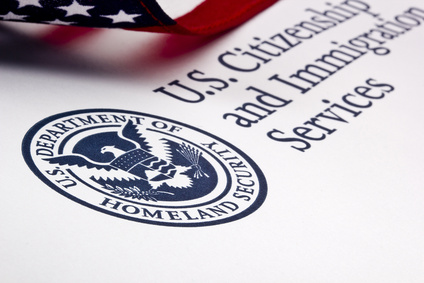Immigration News & Updates eNewsletter
eNewsletter
POSTING DATE: MARCH 30, 2015
Learn More About:
This Week's Immigration News
Immigration News & Updates eNewsletter © 2011 - 2015
For questions about U.S. Residency, Green Cards and Immigration Visas, Visit our Website at: www.ImmigrateToday.com or call our office at: (954) 382-5378
Check Out This Cool Stuff For Immigrants....
Federal Court Hearing On President Obama’s Executive Actions On Immigration Scheduled for April 17th
Immigration
Questions & Answers
Question: My son married a U.S. Citizen and she is sponsoring him for his for his green card. They met at the university as students and both just recently graduated. My daughter in law just got a job but only works part-time and doesn’t make much money so I provided them with the Affidavit of Support for my income. The problem is that my son received a letter from the immigration service saying that my income doesn’t qualify, even though I make about $45,000 per year before expenses. I am a health aid, but I don’t get a regular paycheck with deductions, just a check from the elderly man I take care of every week. My accountant says I’m self employed, so deductions are taken from income on my tax return. We are very upset and wondering if the immigration officer made a mistake since I make enough. If not, what can we do to fix this?
Answer: This is a very common problem in Residency cases. Most U.S. Residents and Citizens who sponsor a foreign relative, including a spouse, are required to file an Affidavit of Support. If the sponsor’s income does not meet the requirements, a U.S. Resident or Citizen Joint-Sponsor can be used who does qualify. However, meeting the minimum income requirements can be very “tricky”, especially if an individual is self-employed, since in such cases, income is not earned by “wages” with an employer issuing a W-2 at the end of the year.
Self employed Sponsors or Joint-Sponsors may think they meet the financial requirements since their gross income meets 125% of the Poverty Guidelines, however, the final net income on the individual’s Tax Return is the figure that the USCIS uses to determine eligibility, not the gross. In your profession, as an example, a Nurses Aid may earn $45,000 a year. However, the gross wages reflected on the self-employment tax form called a Schedule C, are then reduced by expenses and the final Net income may only be $15,000 or less, which would not qualify under the USCIS guidelines. When the USCIS issues a Request For Evidence to provide additional documentation to prove that the Sponsor (and/or Joint Sponsor’s) income meets the requirements, the Sponsor is generally only given one chance to respond to the USCIS request by providing a qualifying Joint Sponsor Affidavit of Support, Tax Return, Paystubs and Employer Letter which meet the guidelines.
If the documents provided do not meet the requirements, the USCIS will not issue another Request, it will simply deny the entire case and all the filing fees will be lost. In order to proceed, a new Residency case must be filed all over again with new USCIS fees – very costly!!! So, make sure that a Joint Sponsor meets the income requirement on the net income line of the Tax Return before sending the Affidavit of Support to the USCIS. In your son’s case, he will need to have another joint sponsor who’s net income meets the qualifications file a new Affidavit.
You can find out more about Affidavits of Support by visiting our website at: www.Immigratetoday.com
or obtain assistance in preparing and filing Affidavits of Support or by calling our office at: 954-382-5378.
USCIS Announces Case Workload Service Center Transfers
The U.S. Court of Appeals (Fifth Circuit) has scheduled a hearing on April 17, 2015 to hear arguments from both sides on the temporary “stay” which halted the President's Executive Actions on Immigration recently.
As background, on February 17th, 2015, just a day before the Executive Actions were to take effect, a U.S. District Judge in Texas issued an order to temporary halt the Immigration programs, to allow a lawsuit filed by the State of Texas and joined by other states to work its way through the courts.
Immigration measures temporarily on hold include those for Dreamers under the expanded DACA program and those for Parents of U.S. Citizens and U.S. Residents under the DAPA program. After the order, the Department of Justice filed an Emergency Motion, Appealing to a higher court, requesting that the court lift the “stay” and allow the programs to go forward. Fourteen (14) states have joined the Justice Department Appeal, requesting that the Appeals Court allow the Executive Action Immigration programs to go forward and be implemented across the nation. Stay tuned….
Helpful Immigration Tips You Can Use
On March 26th, the USCIS announced that it would transfer certain types of Immigration cases between Service Centers, in an effort to “balance the overall workload’. Immigration cases included in the transfer are those for Family Petitions (Form I-130), Fiancé Visas (Form I-129F), Immigrant Worker Petitions (Form I-140), Residency Applications (I-485) and applications under the Deferred Action for Childhood Arrivals (Form I-821D).
The USCIS will send notices to Applicants who’s cases are transferred, which will include the transfer date and new location where the case is being processed.
Read the USCIS Case Transfer Announcement:
Read more about the temporary “stay” which halted the Presidents Executive Actions on Immigration:
Send USCIS Applications and Correspondence by U.S. Express Mail for easy tracking and delivery confirmation
Immigration How To:
How Do I Know If I Qualify To Apply For Early Naturalization?
Eligible U.S. Residents who are spouses of U.S. Citizens can apply for Naturalization early and obtain their U.S. Citizenship in only 2 years and 9 months.
Most U.S. Residents (Green Card holders) must wait for 4 years and 9 months before being eligible to apply for Naturalization. However, qualifying U.S. Residents who are married to U.S. Citizens are eligible to apply 2 years earlier, called “Early Naturalization”. To qualify under this expedited U.S. Citizenship process, a U.S. Resident must fall under what is commonly called the “3/3/3” rule. 1) The U.S. Resident must be married to their U.S. Citizen spouse for at least 3 years and 2) their U.S. Citizen spouse must have been a U.S. Citizen for at least 3 years and finally, the U.S. Resident must have held that status for at least 3 years (really 2 years and 9 months).
Immigration applications and any follow-up correspondence with the USCIS are such important matters, that you should take the additional step of sending these documents to the USCIS by a safe, quick method, which allows you to verify the date and time of delivery to the USCIS. This is especially critical when you have received a Request For Additional Evidence from the USCIS and must provide the requested documentation by a specified deadline. Many applicants do not know that if their response sent to the USCIS is postmarked before the deadline date, but is actually delivered and received by the USCIS after that date, the case is likely to be denied.
Not only is this a tragedy for the beneficiary of the immigration application, but in such instances, all the USCIS filing fees are lost, which in some cases can be thousands of dollars. Certified Mail is not delivered quickly and cannot be tracked online and other private courier services like Fed-ex cannot be delivered to the regular USCIS P.O. box address.
So, since the USCIS is a government agency, like the U.S. Express Mail (U.S. Postal Service) The safest way to send applications/documents and to safeguard against the unfortunate situation above is to use the U.S. Express Mail next day service. The cost is about $15.00 and well worth it. You will receive a tracking# so you can go online and confirm delivery. Be sure to send any responses requested by the USCIS at least one week or more before the deadline. Also, make a copy of everything you send to the USCIS including the initial application, supporting documents, Money Order and all follow-up responses before sending to the USCIS and never send originals! Good luck!
So, as long as the U.S. Resident meets these requirements and is not only currently married to, but continues to reside in a real marriage with their U.S. Citizen spouse – they can apply for early naturalization… now you know ...










